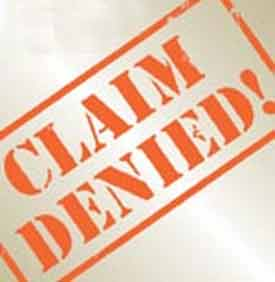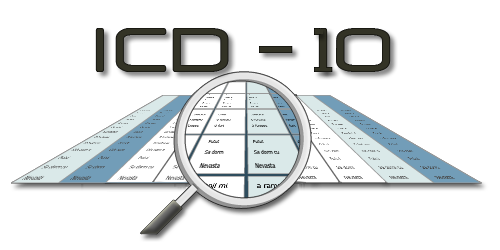Karyn Shatzman, CPC, CGSC--Did you ever work really hard on something, above and beyond the normal circumstances, only to find out that you get no additional compensation for what you have accomplished? This happens to physicians all the time when they do medical billing for increased procedural services. The CPT book gives you a description of a service that is rendered by a physician. The American Medical Association, who writes the CPT, sets guidelines for that procedure code. What happens if that surgery that typically takes two hours to perform suddenly takes six hours? Maybe there were adhesions that the physician had to dissect for hours before they could even start the intended surgery. Payment schedules based on RVU’s do not take these circumstances into consideration, so modifier 22 was created.
Medical Billing Blog
Include Documentation With Medical Billing Of Modifier 22
Code Freeze Extends Through ICD-10 Implementation
Since HHS has proposed a year-long delay of implementing ICD-10, questions have been asked regarding the current ICD-9 code freeze. CMS confirmed that the code freeze will hold until ICD-10 is implemented, regardless of the delay, according to Pat Brooks, RHIA, and senior technical advisor at CMS.
How Medical Practices Sabotage Their Own Cash Flow
Some providers slow down their own cash flow because they do not know any better, or they just want to practice the way they have always practiced before, or they let their employees dictate how they are to run their practice. As crazy as it sounds these scenarios are more common than one would think. Payors are reducing reimbursement rates to balance the national debt, so why reduce your own income voluntarily? I have three case studies to share:
How To Calculate The Cost Of In-House Medical Billing
For many practices, the question of whether or not to outsource the medical billing function has been on the back burner for some time. We say it’s time to take an objective look at the issue and bring yourself closer to making a decision that could be a shot in the arm for the financial health of your practice. Ask yourself just how much it costs you –in hard costs and soft costs—to keep the billing function in-house.
Tips For Use Of Modifier 58 and Modifier 78 In Medical Billing
By Christine Moore, CPC, CGSC--Even though Modifier 58 and Modifier 78 have similar meaning and wording, there are a few tips that will help in choosing the correct global period modifier when billing claims.
Volunteering For A Pay Cut? A Billing Service Can Get You A Raise!
It seems that no one would volunteer for a pay cut, but some providers are doing just that. Physicians are fighting hard to repeal the government’s 27% SGR reduction, but many in private practice are voluntarily accepting pay cuts anyway. How can this be? The AMA states that many private practices using in-house billers leave an estimated 10%-15% of the practice’s revenue uncollected--either through a lack of billing education or unmotivated employees. And the amount of money that goes uncollected can be staggering.
Medical Billing of New Acne Procedure 17340 Denied By BCBSMI
By Sherry Sparham, CPC-D--Sometimes, there are wrinkles in the way payers process claims for medical billing of new procedures. For instance, in the May, 2011, BCBS Record, there is notice of a New Procedure to Bill For Cryotherapy performed in the office. The new procedure code is 17340. Some of you may remember this procedure was used a while back to bill Medicare for cryotherapy of acne. At present, Medicare no longer covers this procedure, but BCBSMI does cover this code effective 08/01/2011. BCBSMI is still paying for procedure 10040, as well, but there are changes to descriptions for each procedure.
Why Providers Need Certified Professional Coders
In any medical practice or clinic, the objective is to provide the best care possible and be reimbursed at the highest possible rate. The former is in the hands of the provider—usually the clinic or practice owner—who has a vested interest in making sure that “best care possible” proposition is carried out. He has direct control and authority over the level of care patients receive, and can easily make adjustments when circumstances warrant. He is comfortable with his level of knowledge and education, knows his limitations, and brings in consultants when necessary to compensate for any lapse in quality he may feel would detract from the care scenario his patients receive. We all know this is a full time job—and then some. So what about the latter—being reimbursed at the highest possible rate? Usually the physician has some knowledge of coding requirements that comes through osmosis from filling out encounter slips for the patients he sees, but there is hardly enough time in the day for a physician to double check every code on every chart processed by his billers and coders. He is justified in expecting that the biller or coder will exhibit the highest commitment to excellence in knowledge, professional standards, compliance and ethics, even though the biller or coder does not have the ownership interest in the practice that the provider has.
There Are Ramifications To Regular Downcoding In Medical Billing
Do not fall into the trap of downcoding just to be ‘on the safe side.’ As a physician, it is your responsibility to code based on your documentation. If you continue to downcode, you’re not only at risk of losing thousands of dollars in revenue per year, but you’re also potentially triggering an audit of your practice.
The Easiest Way To Reduce Patient Bad Debt
In our current economic recession, medical practices across the nation are facing ever increasing bad debt from their patients. With an average of 10% unemployment, high foreclosure rates, never-to-return jobs, and high insurance deductibles, patients are avoiding paying their doctor bills, and more and more patients are being sent to collections. But there is an easy way to reduce patient bad debt starting today.





















